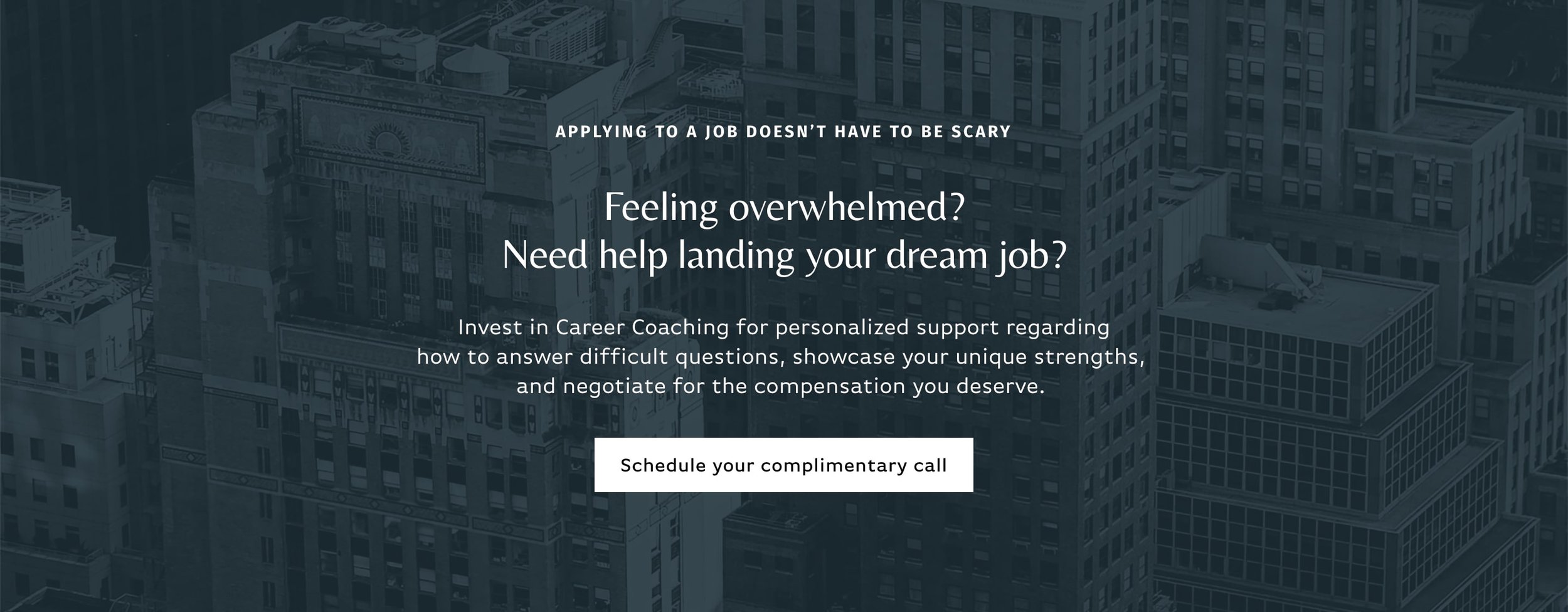Career Coaching: How to Successfully Job Search
Making a career change is not an easy task, no matter the state of the economy.
It takes careful planning and work to do it right, especially if you’re looking to stand out. Not only do you need to spend time prepping to apply, but you have to job search, interview, and if all goes well, negotiate pay and benefits.
For many people, the past year has been a time of reflection. Even before the pandemic, many knew they were unsatisfied with their job and wanted to do something different. But it’s easy to continue doing the same thing when one day keeps rolling into the next. COVID paused life and gave everyone a chance to focus.
Want advice for how to approach the process?
Our blog post “Career Coaching: Helping to make a Career Change” covers the basics for beginning your transition. If you completed those tasks, then you already have some great tools on how to prepare for finding the right job!
Starting your job search
Depending on the industry, the role and the level, the job search strategy will likely vary. Some industries source talent differently. In banking, [How does it work?]. In academia, [How does it work?]. In any case, searching for a job often involves a combination of the following:
Recruiters
Networking
Job Postings
In order to identify the right opportunities, it is crucial to understand how and where to look.
Preparing for the interview
No matter how much people fill in the gaps in their resume, some will still exist. That’s ok. There is no such thing as the perfect candidate who checks every box. Nevertheless, people tend to focus on what they are missing, rather than what they have. Building confidence at this point is so important. And the key to building confidence is preparation.
This is where knowing what questions will be asked comes into play. Being prepared with answers based on proven strategies and relevant information is empowering. The best answers showcase what a candidate has while ensuring the remaining gaps do not hold them back. A good Career Coach can explain the questions that will be asked, and help script and role-play winning answers.
After being offered the job
Sure, getting the job was the goal. But there is still more to do to maximize the value of the opportunity and lay the foundation for success in the new role.
Take Negotiating the Offer for instance. The best time to improve your position is when you have an offer in hand. That’s when the leverage really shifts in favor of the candidate. But many people don’t try to negotiate up. They often do not know what they can ask for. Many are too polite or embarrassed to ask. Let’s say the issue is compensation. When people change careers into new industries or different sized companies, they are often confronted with very new compensation structures (think Bonus, Equity, RSUs, Options). Employers expect candidates to negotiate up to a certain point. Having someone who can explain your offer, strategize what to ask for and explain how to do it pays huge dividends. Improving your offer will make you that much more excited about the new job.
There’s also Laying the Foundation for Success. Starting on Day 1, there are important things that people can do to help ensure a smooth transition and start to set themselves up for success. Some of these include:
Write Annual Objectives
Create first 100-day plan
Make Good First Impressions
Establish Valuable Relationships
Making a Career Transition isn’t easy —
It can be a long road with many steps along the way.
But getting to the other side is worth the investment for your happiness, career, and long-term goals. Often times people stall out in their search due to time constraints, work stress, and feelings of inadequacy. The best way to navigate this? Hire someone who specializes in getting people hired.
A Career Coach can make all the difference by:
Removing the guesswork
Avoiding the common mistakes
Ensuring preparation
Helping embrace the fear
Building confidence
Keeping people on track
Maximizing the opportunity
In other words, a good Career Coach shouldn’t just give advice and walk away. Instead, a Career Coach should clearly explain what needs to be done and show people how to do it. People make career transitions all the time. So ask yourself, “Why not me?”




